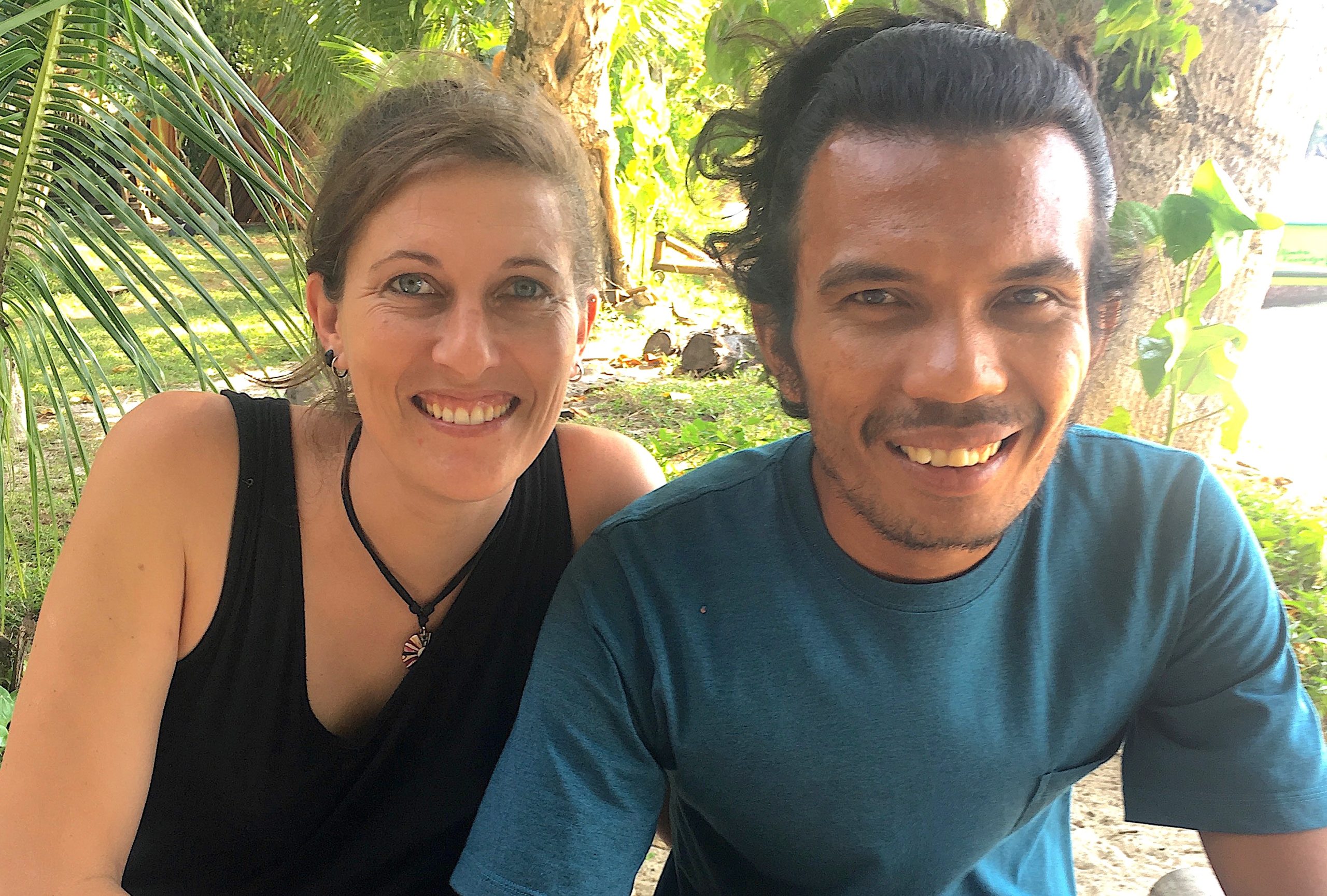Nadege and Reno founded Rimba Eco-Lodge almost one decade ago as a way to integrate tourism with habitat preservation on the Indian Ocean coast of West Sumatra. Tourism, they tell me, is more sustainable than logging or mining when it comes to bringing money into the area – and the very presence of tourists protects the area against poachers and incentivizes local communities to preserve pristine environments.
Part of their ambition is to make a comprehensive inventory of flora and fauna, since Sumatra is 85% deforested, and most scientists who come to this part of the world focus on more isolated islands like Borneo or Sulawesi. Maps of Sumatra don’t have a name for this stretch of coast, so Nadege and Reno have taken to calling it Muaro Duo (two rivers) – same as the name of the bay they hope to protect.
Nadege is originally from Montpelier, France, and she first visited Indonesia to volunteer at a gibbon NGO in Borneo in 2007. After that experience she began to do office work for the NGO’s office in France, and she returned to Indonesia for one month each year for the next five years. The NGO had partner sites in Sumatra, and it was here that she met Reno, a Sumatra native who worked with animals. They were married in 2012, and the following year they founded Rimba, 400-hectare coastal preserve south of Padang.
Rimba Eco-Lodge started out as three huts and a restaurant. It has now grown to host as many as twenty visitors at a time, though it only hits capacity during the summer months. Most of the travelers who stay here are from France, Belgium, Switzerland, Holland, or Germany; Americans who make it to this part of Sumatra are mainly interested in surfing, and don’t linger much on the nature preserve.
Rimba’s projects include assisting local people with medical, funeral, and school expenses at inland Sumatran villages like Sungai Pinang. Nadege and Reno set up a recycling initiative there (one kilo of plastic can be recycled into a liter of fuel), and eventually they hope to hire villagers as rangers to patrol wildlife areas. When poachers arrive at the bay to hunt octopus or lobster with poison, Nadege or Reno will swim out to confront them. Once the poachers brandished their harpoons at Nadege. “You want to kill me?” she said. “Then kill me. Either way, what you’re doing is wrong.”
Nadege and Reno have a daughter, Inea, who is two years old, and last May they took her to France. Nadege says she misses her family and friends back in her homeland, and that she misses eating cheese and drinking wine. “But when I’m in France I miss here,” she says. “There is no perfect place, but I am happy here. I have the best view from my office.”
Note: “Dispatches” are short vignettes, profiles, and mini-essays written and posted from the road, often in tandem with my Instagram account. For more full-formed writing, check out my book Marco Polo Didn’t Go There, or the Essays or Stories archives on this site. I don’t host a “comments” section, but I’m happy to hear your thoughts via my Contact page.

